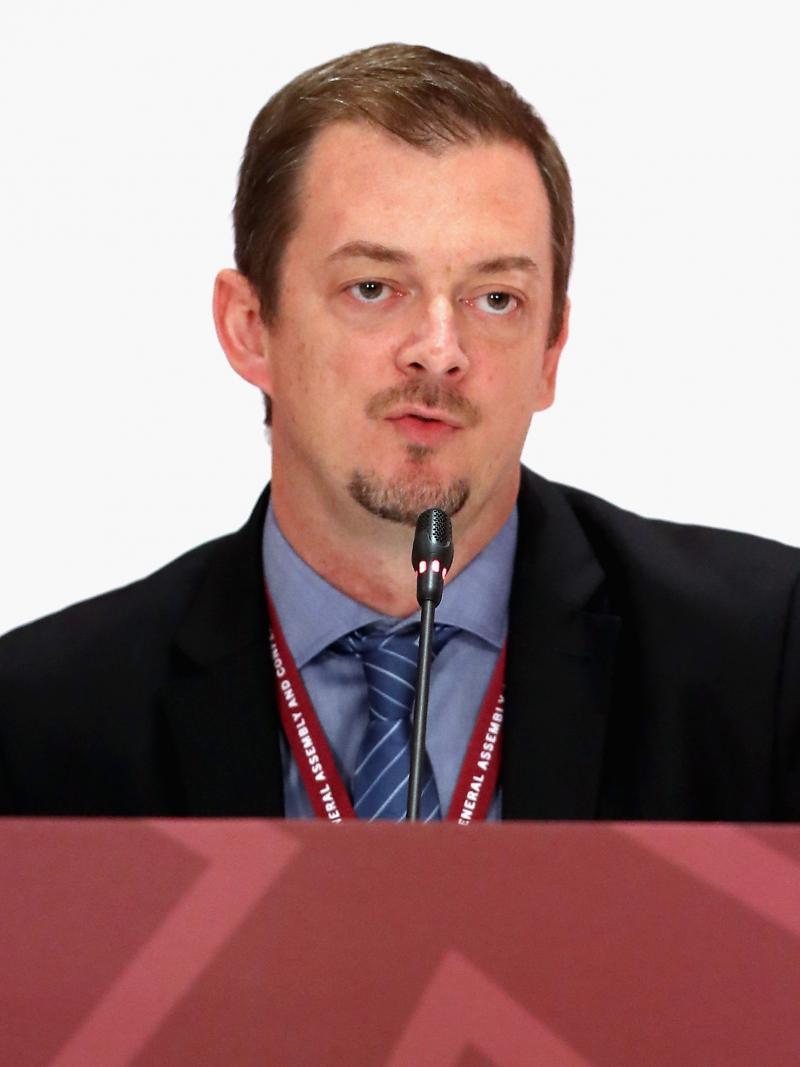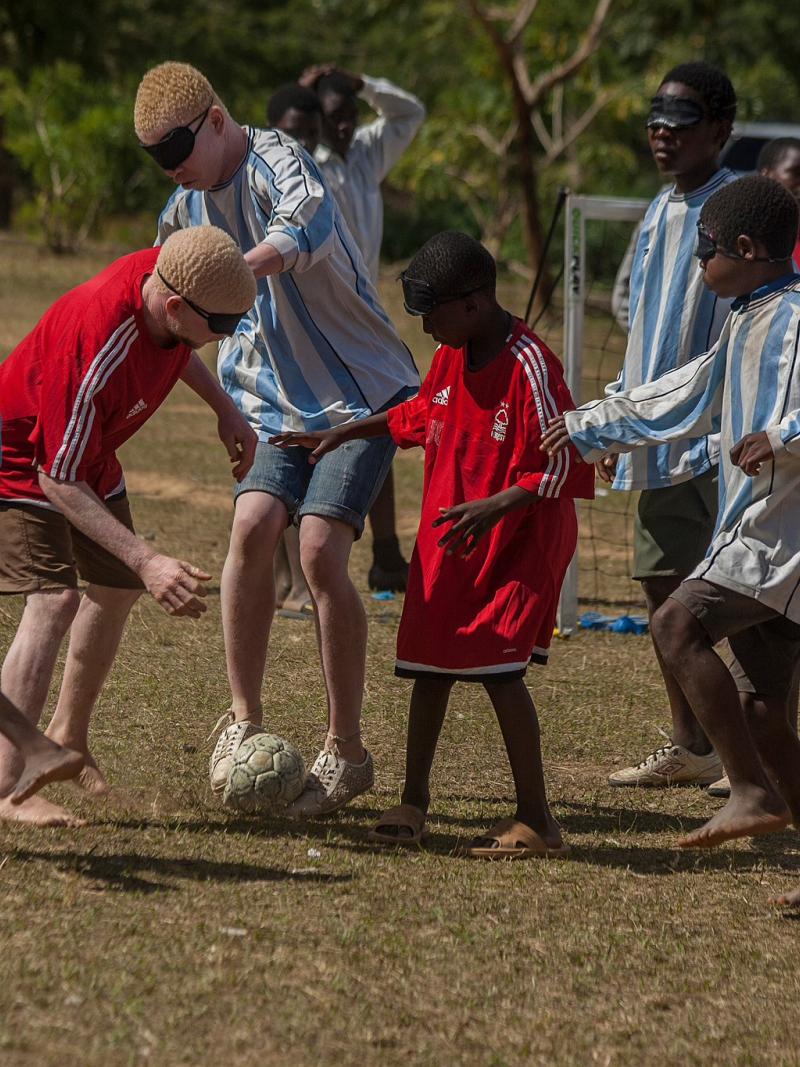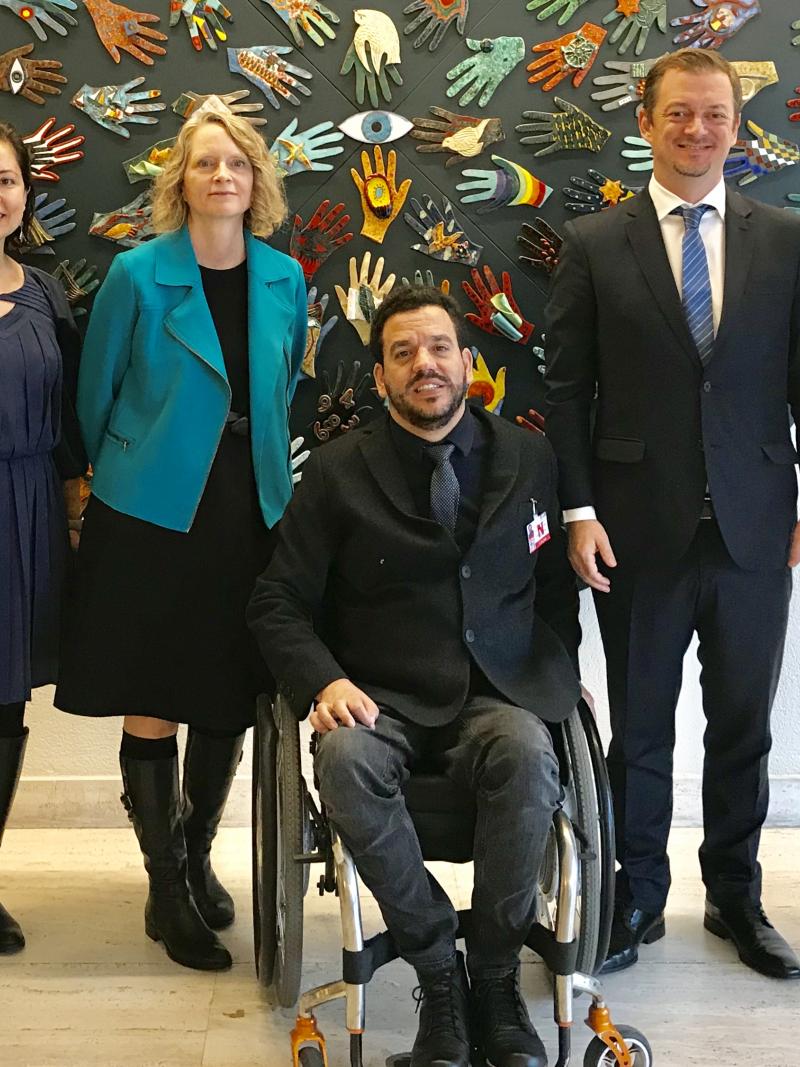IPC joins forces with United Nations Human Rights Office
Legacy of Paralympics highlighted in “Transforming Lives Makes Sense for Everyone” campaign 02 Dec 2018To mark the United Nations (UN) International Day of Persons with Disabilities, the International Paralympic Committee (IPC) and the Office of the UN High Commissioner for Human Rights are a launching a campaign which highlights the impact the Paralympic Games have on transforming society.
Focusing on several editions of the Paralympics, the “Transforming Lives Makes Sense for Everyone” campaign showcases the long-term legacies the Games have for persons with disabilities through education, employment, inclusive cities, Para sport and political leadership.
On Monday (3 December), the first in a series of videos will be published which demonstrates how the London 2012 Paralympics have contributed to greater employment opportunities for persons with disabilities in Great Britain.
According to recent figures from the Office of National Statistics , 3.85 million persons with disabilities are now in employment in Great Britain, nearly one million more than five years ago.*
Andrew Parsons, IPC President, said: “The Paralympic Games are the world’s number one sport event for driving social inclusion and together with the UN Human Rights Office, the “Transforming Lives Makes Sense for Everyone” campaign highlights the long-term legacies the Games have for persons with disabilities.
“The London 2012 Paralympics were a great success, set new benchmarks for future editions, and left a tremendous legacy on British society. Soon after the Games, research showed that one in three people – equivalent to roughly 20 million people - changed their attitudes towards disability.^ Such a seismic shift in attitudes has led to greater employment opportunities with nearly one million more persons with disabilities now in employment.
“Although there has been great progress since London 2012, far more work still needs to be done, not just in Great Britain but around the world. Disability should not be a barrier to securing employment and I hope the series of videos we have produced with the UN Human Rights Office will open the eyes of all employers.”
Michelle Bachelet, the UN High Commissioner for Human Rights, said: “Behind every Paralympic athlete there is a human rights story. Social protection, sports training, education, security of income, family support, peace in their communities, are all determinants of these success stories. At the same time, these stories show us that people with disabilities in an enabling environment can be their own storytellers, with their own voice, and their lives change many others for the better.”
Paralympian stories
The three videos that will be published during December tell the stories of several people who have either played key roles in driving inclusive employment in Great Britain or who have secured employment following London 2012.
Three British Paralympians feature, including eight-time Paralympic champion Sophie Christiansen. When not challenging for global titles as one of the world’s best Para equestrian riders, Christiansen is an analyst for Goldman Sachs in London.
Recently named on the prestigious BBC 100 Women list for 2018, Beijing 2008 Paralympic swimming gold medallist Liz Johnson co-founded The Ability People (TAP), an ethical recruitment agency staffed entirely by people with impairments driven by the belief that a person’s achievement should only be determined by their ability.
After representing Great Britain for 10 years, Paralympic swimmer Kate Grey has carved out a new career in the world of media and broadcasting and now works for the BBC. Another BBC presenter is JJ Chalmers, a former Royal Marine who sustained devastating injuries in a bomb blast while serving in Afghanistan in 2011. Inspired by British broadcaster Channel 4’s coverage of London 2012 – which featured a number of presenters with an impairment – Chalmers has successfully pursued a career in broadcasting.
Driving inclusion
As a Paralympic broadcaster, Channel 4 has played a leading role in changing the face of disability in Great Britain. Dan Brooke, the company’s Chief Marketing and Communications Officer, explains in the videos how the broadcaster generated record audiences for its TV coverage and made inclusion and diversity central to its business.
Stephen Frost played a significant role in driving inclusion in his role as Head of Diversity and Inclusion for the London 2012 Organising Committee before forming Frost Included. Frost, who teaches inclusive Leadership at Harvard Business School, talks about his work before, during and after the London 2012 Games.
In 2017, disability charity Scope launched Work With Me, a three year campaign in partnership with Virgin Media to support one million people with a disability to get into and stay in work. James Taylor, Scope’s Head of Policy, Public Affairs and Campaigns talks about the campaign and the major challenges that still lie ahead for people with an impairment to secure employment.
Earlier this year TV producer and broadcaster Andy Stevenson was named on the Shaw Trust Disability 100 List, an annual publication of the most influential people with an impairment in the United Kingdom. Ever since watching London 2012 during his school years, Adil Ghani has been passionate about changing perceptions of disability and now works as a recruitment consultant for TAP. Both feature in the first series of videos.
The London 2012 Paralympic Games took place between 29 August and 9 September attracting 4,237 Para athletes from 164 countries. A record 2.7 million tickets were sold while a cumulative TV audience of 3.8 billion people watched in over 100 countries.
^ Source: London 2012 Organising Committee research by Nielsen








